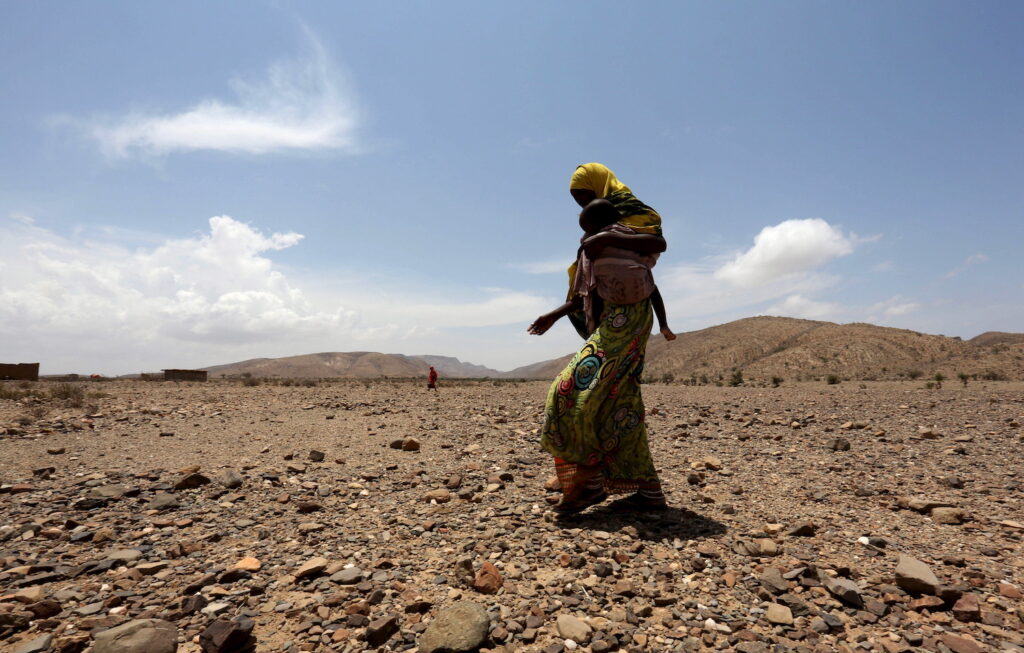Global energy transition, challenges of policy commitment
The global energy transition is entering a new phase, marked by rising costs, complexity, and increased technology challenges. These are the views shared in the Global Energy Perspective 2025 report, which presents a data-driven view of the possible road ahead and Africa’s intricate part in it.
“To successfully navigate the next phase and meet the Paris Agreement goals, urgent action will be needed and the pace of change must accelerated,” the report cautions.
Already, significant progress has been made in the ten years since the landmark Paris Agreement, however, the report warns; “Clean energy transition will also need to be balanced with affordability, energy system resiliency, and energy security in an increasingly uncertain macroeconomic environment.”
“Our report is intended to serve as a fact base grounded in the best currently available data to help global stakeholders meet decarbonization goals,” he details.
True to his assertion, the report offers a detailed demand outlook for 68 sectors and 78 fuels across a 1.5° pathway, as prescribed in the Paris Agreement. To explain the challenges ahead, the report looks at three bottom-up energy transition scenarios that have been designed to reflect the changing global conditions, including geopolitical shifts, increasingly complex supply chains, and higher inflation.
Here are the three scenerios simplified and summaries; If we look at the Sustainable Transformation scenario, then rising emissions will lead to global temperature increases above 1.5°C by 2050, from around 1.8°C
As for the Continued Momentum scenario, temperatures will rise to around 2.2°C and rise to around 2.6°C in the Slow Evolution scenario.
“The critical question this research aims to address is how the world can achieve a step change in its efforts toward meeting net-zero goals and avoid the worst impacts of climate change,” details.
Based on the report, it is clear that successfully navigation of the transition away from fossil fuels will require focusing beyond a single solution or technology.
“There are no silver bullets, the future calls for a holistic transformation of the global energy system by incorporating a range of proven and emerging levers,”
Governments, in the west and developing nations as well, must put considerations beyond technological feasibility.
The author is of the view that solutions must also consider capital deployment, improved business approaches, adjusted regulations, and the establishment of political and public support in the face of competing economic priorities.
“Increased energy demand and the continued role of fossil fuels in the energy system mean emissions could continue rising through 2025–35,” he further warns.
According to the report, emissions have not reached the peak yet. It warns that global CO2 emissions from combustion and industrial processes are projected to increase thought this year (2025).
The rather sombre report shows that the emissions scenario will begin to diverge toward 2030, with the decline in emissions coming around 2050.
“Despite this projected decline, 2050 emissions are still meaningfully above net-zero targets,” it admits.

Global energy transition: If we look at the Sustainable Transformation scenario, then rising emissions will lead to global temperature increases above 1.5°C by 2050, from around 1.8°C Photo/Reuters: Geothermal power: Tanzania’s renewed drive for green energy
The emissions decline is driven primarily by economic factors, the UN reports. According to UN experts, cost-effectiveness of low-carbon technology in sectors such as power and road transport play a significant and determining role.
The UN cites solar photovoltaic (PV) deployment in Europe which it says is on track to reach 2030 targets. It also looks at China where it says significant strides have been made in both solar and electric vehicle (EV) adoption.
According to the UN, it is government policy and regulations that will fuel the adoption of low-carbon technology and support a decline in emissions. Unfortunately, “a major cross-cutting bottleneck facing the energy transition is a lack of firm commitment to project pipelines,” says Prof. Hendricks Mark, an energy specialist at Boston University.
He mirrors another report by the research institute McKinsey, which published a report last year ‘Energy Transition Perspectives’ in which it pointed to the fact that; “Despite significant announced investment and a supportive policy environment, there is a lack of firm commitment that could put a significant number of RES projects at risk.”
The professor goes on to warn that despite the deployment of low-carbon power generation technologies, the challenge remains in relation to broader market design and infrastructure.
“Notwithstanding numerous announcements spurred by policies such as the US Inflation Reduction Act, clean commodities production faces a significant shortfall in firm commitments,” he underlines the sentiment.
According to the professor, the pace of what he describes as ‘Final Investment Decision (FID)’ is not on track to meet net-zero targets.
“Currently, less than half of the deployment pipeline to 2030 for low-carbon power has reached FID,” he reveals.
African countries contribution to the emission of Carbon dioxide (CO2) is ranged between 3-5 per cent of the global emission.
Reiterating this known fact, the African Union through it’s agency to the African Energy Commission (AFREC), also decries the fact that; “Despite its low contribution to the emission of CO2, climate changes threaten Africa very severely.”
In it’s introduction of the African Energy Transition Programme AFREC says the programme is meant to accelerate Africa’s energy transition and foster the required transformation across the continent.
“AFREC is meant to foster joint inclusive economic growth, wealth creation, poverty eradication, and inequality reduction in a sustainable climate compatible manner,” reads the program introduction note.
In line with the Paris Agreement the program provides a clear understanding of the transformations of the energy system that are needed in the short, medium and long term to achieve the intended energy transition.
The program patrons say they will achieve this by identifying key frameworks that will serve to support the development of sectoral and technological changes that must be adapted.
“We must have in place policy-relevant and country-driven strategies that are consistent with the national development agenda and the Paris Agreement goals,” the executive summary asserts.
“The programme is envisioned to transform energy development in Africa, driven by AU Agenda 2063, Sustainable Development Goals (SDGs) and Paris Agreement on climate change,” it reads.
To achieve it’s intended goals, the program identifies access to affordable clean energy for industry use and households as a cornerstone.
“This will be achieved through the introduction and implemention of comprehensive policy tools that can transform the African Energy Sector to mostly be based on renewable resources through an integrated approach that develop synergies whilst maximising co-benefits and trade-offs,” the executive summary elaborates.
Finally, it proclaims that the African energy transition programme is the main umbrella under which all AFREC programmes, policies and are developed and implemented.
The programme aims to fully mobilize Africa’s own energy resources and potentials by bringing energy to the top of national and regional agendas.
“It will assume approaches that put Africa directly on to innovative, low carbon energy development pathways, avoiding the fossil fuel lock-in that now faces most industrialized and emerging economies,” it concludes.
You may also like...
Diddy's Legal Troubles & Racketeering Trial

Music mogul Sean 'Diddy' Combs was acquitted of sex trafficking and racketeering charges but convicted on transportation...
Thomas Partey Faces Rape & Sexual Assault Charges

Former Arsenal midfielder Thomas Partey has been formally charged with multiple counts of rape and sexual assault by UK ...
Nigeria Universities Changes Admission Policies

JAMB has clarified its admission policies, rectifying a student's status, reiterating the necessity of its Central Admis...
Ghana's Economic Reforms & Gold Sector Initiatives

Ghana is undertaking a comprehensive economic overhaul with President John Dramani Mahama's 24-Hour Economy and Accelera...
WAFCON 2024 African Women's Football Tournament

The 2024 Women's Africa Cup of Nations opened with thrilling matches, seeing Nigeria's Super Falcons secure a dominant 3...
Emergence & Dynamics of Nigeria's ADC Coalition

A new opposition coalition, led by the African Democratic Congress (ADC), is emerging to challenge President Bola Ahmed ...
Demise of Olubadan of Ibadanland
Oba Owolabi Olakulehin, the 43rd Olubadan of Ibadanland, has died at 90, concluding a life of distinguished service in t...
Death of Nigerian Goalkeeping Legend Peter Rufai

Nigerian football mourns the death of legendary Super Eagles goalkeeper Peter Rufai, who passed away at 61. Known as 'Do...



